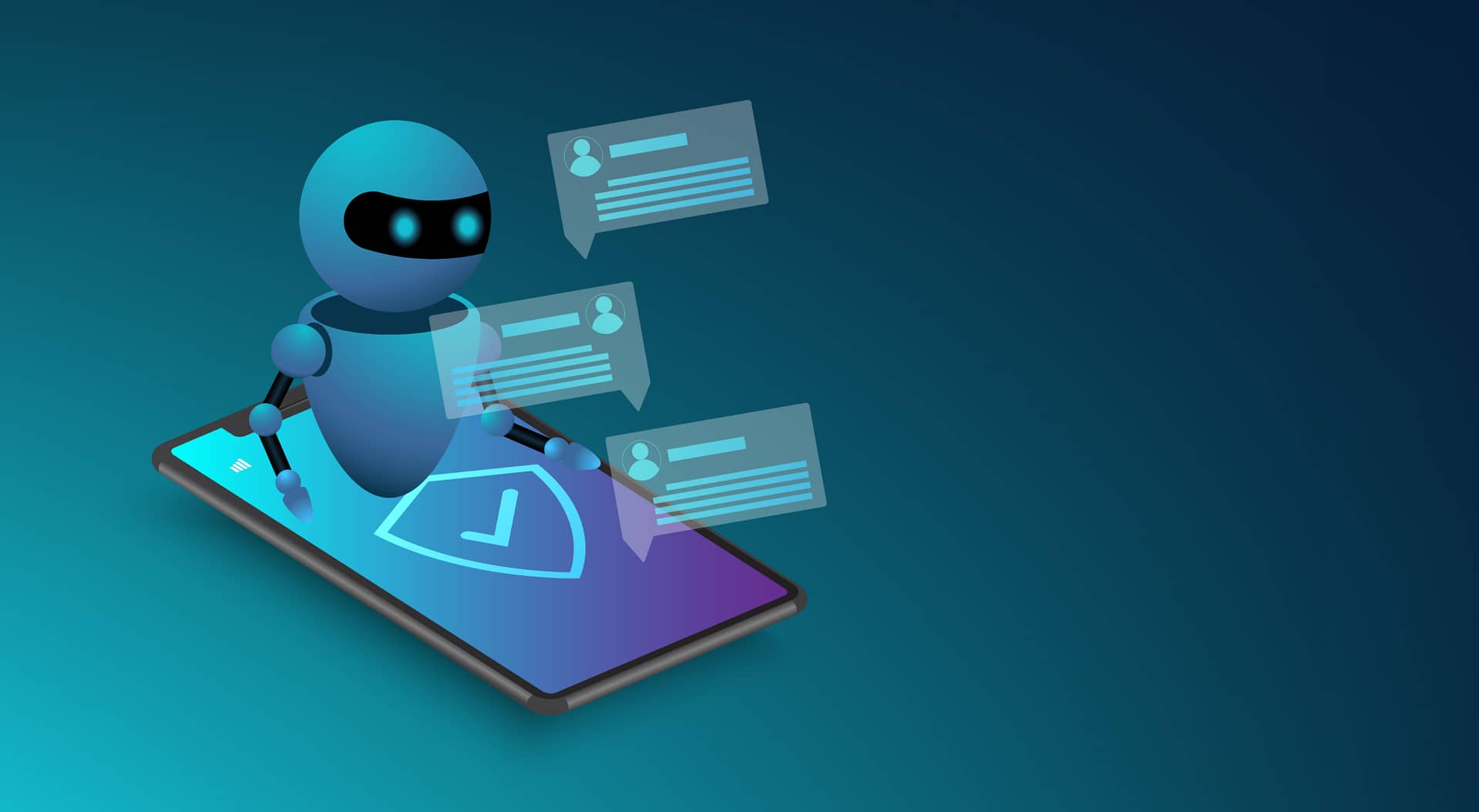Marketing chatbots can maximize the effectiveness of your customer care strategy by increasing engagement and reducing friction in the customer journey from acquisition to retention. Instead of spending your team’s time answering every incoming customer question, chatbots allow you to automate many activities, such as answering frequently asked questions and collecting customer feedback. This automation significantly reduces time constraints while reducing customer service costs, allowing you to focus on optimizing your strategy.
What are chatbots?
Chatbots are built to automatically respond to messages they receive and can be rules-based or artificial intelligence (AI).
Rule-based chatbots are programmed to respond the same way every time or to messages that contain specific keywords. AI chatbots use machine learning (ML) and natural language processing (NLP) to understand the intent of the messages they receive and tailor responses in a conversational manner.
Chatbots typically work in text messages, website chat windows, and social messaging services such as Messenger, Twitter, WhatsApp, and Instagram Direct to receive and respond to messages.
What is chatbot marketing?
Chatbot marketing, or bot marketing, is the practice of using automated messaging to communicate directly with customers during the buying process. It may help you make purchases, sign up for a free trial, download assets, and more.
Chatbots respond to customer queries instantly and provide 24/7 customer service. The data you collect can be used to understand customer challenges and emerging trends, allowing you to provide a more personalized customer experience.
Marketing chatbots often include opt-in prompts to help customers understand your intent and encourage you to make the right decision. Including keywords in your chatbot allows it to perform specific tasks based on what your customers type in their messages. This allows for more efficient and proactive efforts.
What are the benefits of chatbot marketing?
y automating answers to common customer questions that don’t require human assistance, you can save time and resources and use them in meaningful ways. Rules-based chatbots, AI-based bots, or hybrid chatbots that combine rules-based chatbots with AI algorithms allow you to automate many customer and prospect interactions and reduce response time delays. delete
Additionally, using chatbot marketing in your customer support process allows your customers to access information beyond normal business hours.
Generate leads and revenue
Chatbots, especially when connected to a website, can collect information necessary to provide effective support. By extracting intent from messages exchanged with customers and prospects, chatbots can automatically direct customers in the right direction, whether it’s getting support or talking to your sales team.
Guide users to better outcomes
Customers don’t always know where to go to find the information they’re seeking. New customers often face this situation. By asking the right questions, you can direct users to the best place to find the information they need. This can also include support beyond sales, such as end-to-end shipping and returns.
Gin Customer Insights
Chatbots are also important for gathering relevant insights through intelligent listening. Data collected from chatbot conversations can be used to improve customer experience and provide product descriptions, improvements and personalization.
Chatbots VS Conversational AI
Your chatbot marketing strategy can be as complex or simple as this: You want to choose based on your business, customer profile and budget.
Ground rules as chatbots follow instructions based on customer responses. These chatbots have scripts that follow simple decision trees designed for specific interactions.
Chatbots designed to understand the user’s context and intent to perform complex tasks are called conversational artificial intelligence. NLP algorithms in chatbots use text understanding to identify themes and topics in customer responses. These AI algorithms help chatbots interact with customers on a daily basis and can direct them to different tasks or specific teams when questions need to be resolved.
If you want to easily improve some aspects of customer interaction, such as helping your customers navigate your website or purchase products, the right chatbot can help you, yes. But if you want to handle tough questions for customers, like mail and delivery across the region, a virtual assistant can do a better job.




